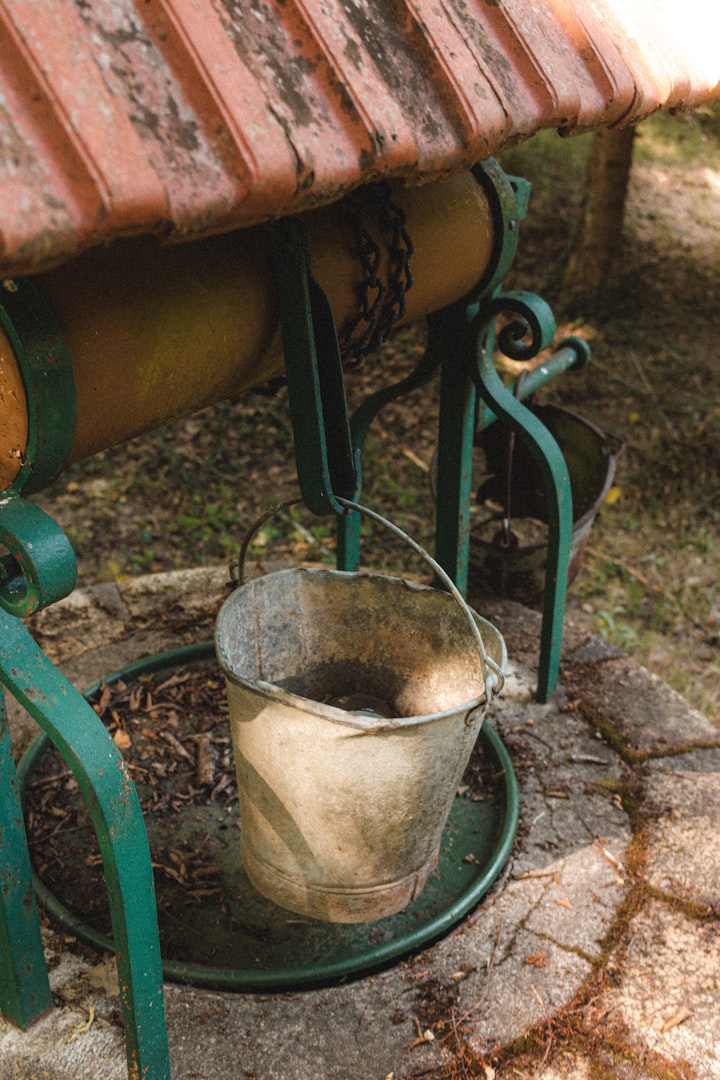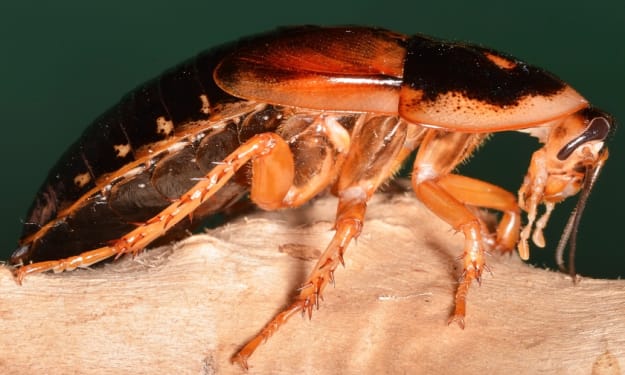Family Traditions
A father and son find a new use for the barn they've inherited

The old barn in the back of our property was a bit of an eyesore. The deteriorating wood that shaped the roof was peeling badly, and the rotting walls of the structure had been permanently stained a syrupy brown by bouts of heavy rain. The average person would have considered it an embarrassment, a glaring scar sticking out harshly against the rolling hills of our orderly pastures. Having grown up alongside the barn, I didn’t give much thought as to how the building looked. I disliked it for an entirely different reason. I associated two things with the building: hard work and the sacrifice of my free time. During the summer months I spent most of my Saturday afternoons shut inside the cold, fluorescent lit structure working alongside my father as I helped him butcher our livestock and any wild game we'd managed to secure. I began accompanying him to accomplish these chores a month or so after my twelfth birthday, my Saturdays snatched out of my grasp right as I was old enough to start enjoying a bit of freedom. This fact often shocked individuals who had no experience growing up on a farm. Understandably, watching a twelve-year-old handle a captive bolt capable of downing a fully grown bull would make any city dweller’s heart skip a beat. Despite this, I never felt as if I was in any danger. My mother made sure of it. She was the one who had insisted I turn twelve before helping my father. She wanted to preserve my childhood innocence as long as possible. Even after I began working in the barn her wariness still lingered, ingrained in the back of my father's mind. She'd never forgive him if I was hurt, and he knew it. Due to this fact, it was months before I was even allowed to use a bell scraper, much less touch the scalding tank. Contrarily, had it been left up to my father, I would have been helping him out as soon as I could lift a meat saw. He often boasted about skinning his first pig at just ten.
I spent those first few months away from any sharp tools, helping my father keep things tidy. This mostly entailed disposing of what felt like endless buckets of fresh blood. Again, to those unaware of what goes on growing up as a farmer’s child this might seem disturbing, but the blood never scared me. I quickly became desensitized to the mess. Watching it slosh around in tin buckets, more black than red due to the quantity, I had a hard time associating it with what coursed through my own veins. Like many boys my age, it was the shower that awaited me after the task that I really dreaded. My mother often had to track me down to make sure I'd washed up. Most of the time I'd already be off running the dogs along the creek, rust colored flecks still caking the cuticles of my fingers.
In retrospect, perhaps the chore did harden me a bit, but only regarding how I viewed my own injuries. I grew so used to the sight of blood that there was a bit of a disconnect. I began to associate the severity of wounds with the amount of pain felt instead of how much blood was visible.
As I grew, I took on more and more responsibility until, at age fourteen, my father decided it was time for me to take over completely. He had plans to convert our small family farm into a business that produced a livable wage. This meant that he had to shift his focus from the livestock to producing crops. Reviving the fields that once grew wheat and barley, grains my grandfather had somehow managed to support his family of seven harvesting, was going to be very time consuming. In regard to my abilities this change wouldn't be an issue. Over the course of the past two years, I had learned a lot and would have no problem working on my own. At fourteen, I could have put just about any seasoned butcher to shame, a skill I attributed to the rural nature of our home and the high price of meat. My parents, as my grandparents had before them, relied solely on the land to put protein on our table. Due to this we consumed just about anything we could get our hands on. From the squirrels my father hunted in the fall to the chickens my mother raised from hatchlings, I knew how to prepare almost anything.
I should have welcomed the opportunity to work alone as it would relieve some of the pressure caused by my father breathing down my neck, a problem that only seemed to increase with age. However, there was one issue. I was fully capable of carrying out every step of the slaughtering and butchering processes except one. The initial step. Stunning the animal. Physically I was able to complete this task but mentally I was experiencing a block. Despite spending years preparing and consuming both livestock and game, it still felt like cold hearted betrayal to look a creature in the eyes and end it's life. Though I never admitted it aloud, my father could tell from my body language just how upsetting this task was for me. He had been relatively lenient so far, stunning most of the animals himself, but I knew it was a responsibility I was eventually going to have to take on.
I still remember the conversation I had with my father that helped me push aside the discomfort I was feeling. We had been especially busy, and our work had bled over into Sunday morning. It was entirely too early when I made my way through the barn doors, still rubbing the sleep from my eyes. The inside of the barn couldn’t have been more different from the outside. Apart from the unavoidable metallic scent that lingered from bleeding out animals, it seemed as if it had barely been used. It was modern, well maintained, and always extremely clean. Again, this was another result of my mother putting her foot down. When I was very young my father used to butcher meat inside the house on our kitchen table. My mother couldn’t stand the smell let alone the mess and demanded that my father either find another place to prepare meat or give up butchering altogether. It was then that my father decided to reconstruct the dilapidated barn that sat on the edge of our property. Despite its ragged appearance my mother loved it, she said that it made us look like “real farmers.” She even insisted my father string lights on the roof every Christmas to match the house. However, even she couldn’t deny that it wasn’t the most glamorous barn in the world. Though she had allowed my father to cut corners on the outside of the structure she did insist that the inside of the barn was properly cared for. In her words she refused to eat meat “butchered on a splintered plank like some sort of barbarian.” My father had kept his promise, and on that Sunday, like every other day, I walked into a barn that looked less like a slaughterhouse and more like an operating room.
My father had gotten out of bed even earlier than I had and was already settled on a stool in the corner of the room. His face was wrinkled in concentration as he ran the curve of his skinning knife over a brand-new oil stone. Leaning lightly against the base of our skinning rack I took the moment to ask a few questions.
“Hey dad?”
“Yeah?”
I paused for a moment deciding my words carefully.
“How is it so easy for you to put the animals down? Do you ever worry, that they’re like, I don’t know, scared?”
He chuckled.
“I wouldn’t call it easy, but I know plenty of good reasons we do it,”
“Like what?” I responded.
“Well... for one, if we didn’t eat animals there would be way too many of them and they wouldn’t have a good quality of life, always fighting for space and food,” he reasoned, eyes still focused on sharpening the knife in his hands.
I nodded and stayed silent for a moment before trying again.
“Aren’t they intelligent like us though? Don’t they know what’s going on?” I asked
He looked up.
“Sure, they're intelligent but it's different. Listen, we were meant to eat meat bud, that’s how people’s brains grew to be so big. It’s how we gained our intelligence. It’s necessary for us,”
“Hmm. I get that I guess. I don’t know, couldn’t we maybe just eat them when they die of old age or something?” I mumbled.
“It’s best for everyone when they just reach maturity. That way the animals are saved from getting old and being in pain and we get to enjoy fresh meat that’s not stringy or tough,”
I stayed quiet, looking down at my shoes which I was tapping gently on the floor of the barn.
“Look, we treat the animals we butcher really well. They would die anyways and most likely in a much less humane way than we put them down,” he explained.
I nodded.
“That makes sense,” I responded quietly.
“Good bud,” he said as he stood up and slapped my back with his free hand.
He turned to the latest mound of raw meat we had secured. The body of a fourteen-year-old girl from a few towns over. He must have put her down right before I walked in, as her cheeks still had a flush to them. He started to inspect the body, deciding which cuts of meat were salvageable.
“When we’re done with this, I want you to take it down to your mother and make sure she puts it in the stand-alone freezer. If there’s no room left, she can put it with the pork but make sure she labels it. I don’t want her trying to make another one of those stuffed loins with this, it needs to be cooked at a much lower temperature or it gets that gummy texture,”
“Sounds good,” I replied scooting one of the larger tin buckets over with my foot and yanking a bleeding hook down from one of the many racks that lined the walls.
About the Creator
Mary Moody
Queer, intersectional feminist exploring my identity through art.






Comments
There are no comments for this story
Be the first to respond and start the conversation.